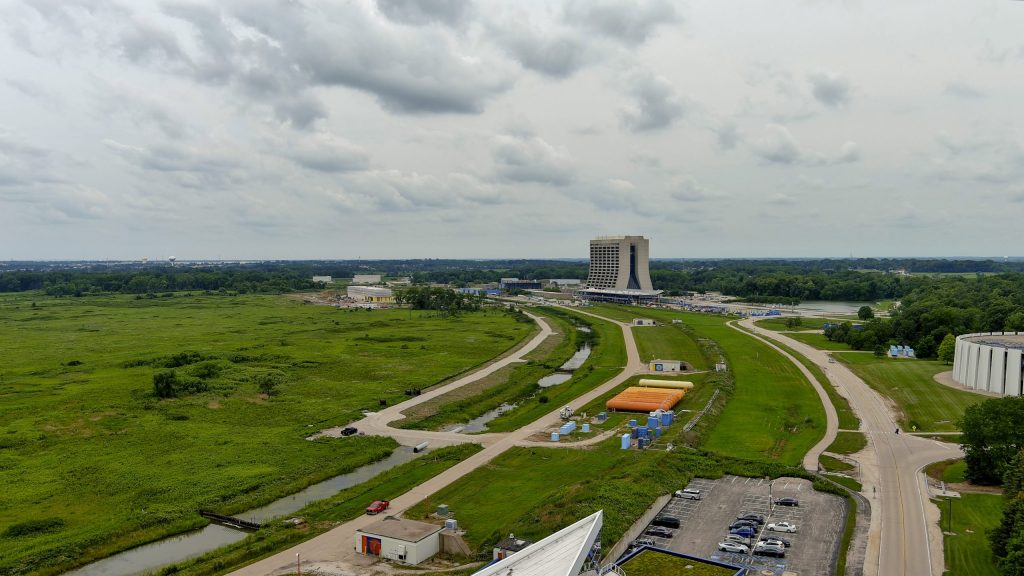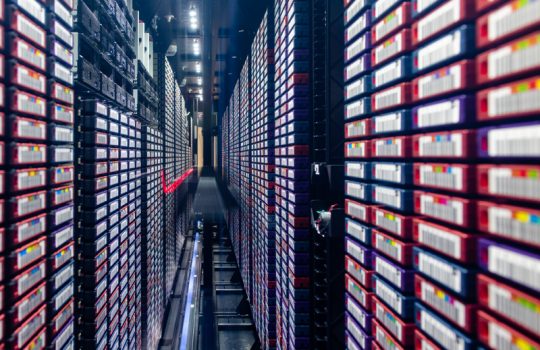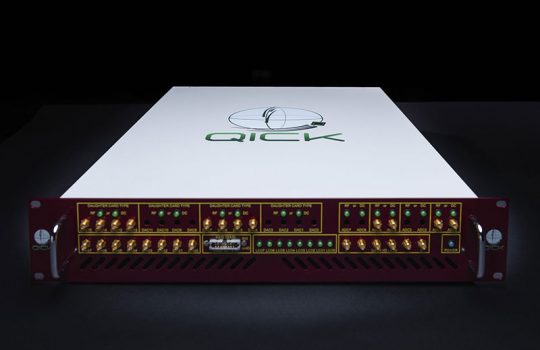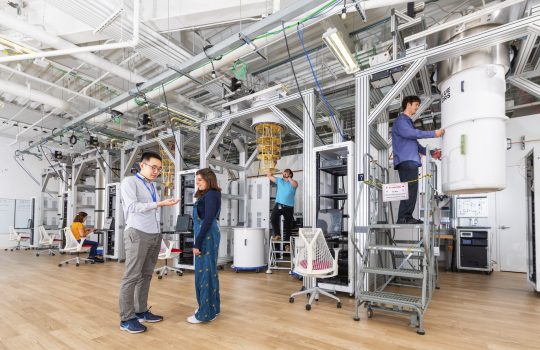The U.S. Department of Energy allocated funds to its 17 national laboratories from the Inflation Reduction Act to mitigate the rise of project costs as a result of inflation. Fermilab will spend the funding on the lab’s on-going construction projects. This will allow the lab’s major projects to uphold their schedules and keep their commitment to international collaborators.
The U.S. Department of Energy’s Fermi National Accelerator Laboratory will receive $260 million in funding due to the Inflation Reduction Act (IRA) of 2022. The funding was designated by the DOE’s Office of Science and allows the lab’s construction projects to lock in construction costs that otherwise could rise due to inflation.
“America’s commitment to science and ingenuity shaped us into the world leaders we are today, and the continued success of our national laboratories will ensure we’re at the global forefront of innovation for generations to come,” said U.S. Secretary of Energy Jennifer M. Granholm. “Thanks to President Biden’s Inflation Reduction Act, these world-class institutions will receive $1.5 billion — one of the largest ever investments in national laboratory infrastructure — to develop advanced energy and manufacturing technologies we need to advance the frontiers of science and tackle tomorrow’s challenges.”
On Friday, Nov. 4, at 2:00 p.m. CT, Secretary Granholm and other DOE officials will visit Argonne National Laboratory and will host a live webinar event on the critical role DOE and the national labs play in the newly released White House report on U.S. Innovation to Meet 2050 Climate Goals.

Fermilab will receive funding from the Inflation Reduction Act of 2022 to mitigate rising project costs as a result of inflation. Photo: Ryan Postel, Fermilab
The IRA funding allocated to Fermilab provides support for several, on-going construction projects. It will allow the lab’s flagship project, the Long-Baseline Neutrino Facility, to stay on track and maintain its construction schedule. By doing so, Fermilab will continue moving forward with construction of the LBNF facility, which will house the international Deep Underground Neutrino Experiment at Fermilab and in Lead, South Dakota. The DUNE experiment, when complete, will perform research probing the fundamental properties of matter in the universe.
“I’m extremely grateful for the Department of Energy in allocating this funding to our laboratory,” said Fermilab Director Lia Merminga. “This money will allow us to mitigate the effects of inflation, deliver projects and scientific results on time, and honor our commitments to national and international partners.”
Funding will also help Fermilab deliver on its commitments to CERN, the research center that operates the largest particle physics laboratory in the world, in contributing to the high-luminosity upgrades to the Large Hadron Collider and its experiments. With the funding, Fermilab will be able to build and ship equipment as planned to allow more than 1,000 scientists and graduate students in the United States to continue their work on the LHC to understand the nature of matter and energy.
The IRA funding will increase support to the Muon-to-Electron conversion experiment. This will keep the project on track for completion by 2025, meeting critical deadlines and staying ahead of international competition.
“In the next five years, Fermilab expects to invest more than $500 million dollars in the construction of new buildings and infrastructure on site, creating many jobs,” added Merminga. “With the IRA funding, we now have the assurance that we can continue our projects on their planned schedules.”
Fermilab is one of the 17 DOE national laboratories and is the premier laboratory for particle physics and particle accelerators in the United States. The laboratory has one of the largest portfolios of construction projects in the DOE Office of Science.
Fermi National Accelerator Laboratory is America’s premier national laboratory for particle physics and accelerator research. A U.S. Department of Energy Office of Science laboratory, Fermilab is located near Chicago, Illinois, and operated under contract by the Fermi Research Alliance LLC, a joint partnership between the University of Chicago and the Universities Research Association, Inc. Visit Fermilab’s website and follow us on Twitter at @Fermilab.



